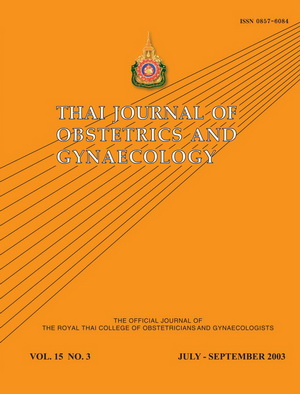Quality of Life and Urinary Incontinence in Women
Main Article Content
Abstract
Objective To assess the impact of urinary incontinence on quality of life of women attending menopause clinic.
Subjects Women attending menopause clinic, Faculty of Medicine, Ramathibodi Hospital
Methods A survey using a modified self-administered, incontinence-specific quality of life
(l-QOL) questionnaire was performed among women attending the menopause clinic, Ramathibodi Hospital, Bangkok, Thailand. The questionnaire consists of 22 items, each with a 4-point response scale. There were also three subscale scores for the avoidance and limiting behavior, psychosocial impacts, and social embarrassment. The individual responses to the 22 items were summed and averaged for a total score and subscale scores. Unpaired t-test and ANOVA were used to analyse the data.
Results Nine hundred and twenty completed questionnaires were returned. The prevalence
of urinary incontinence was 71.74%. The results showed that incontinence-specific quality of life was affected by urinary incontinence in aspects of avoidance and limiting behavior, psychosocial impacts and social embarrassment. Impairment of quality of life was not related as statistically significant to age, menopausal status, and hormone replacement therapy.
Conclusion Urinary incontinence was experienced by nearly three fourth of women attending the menopause clinic and it adversely affects quality of life.


